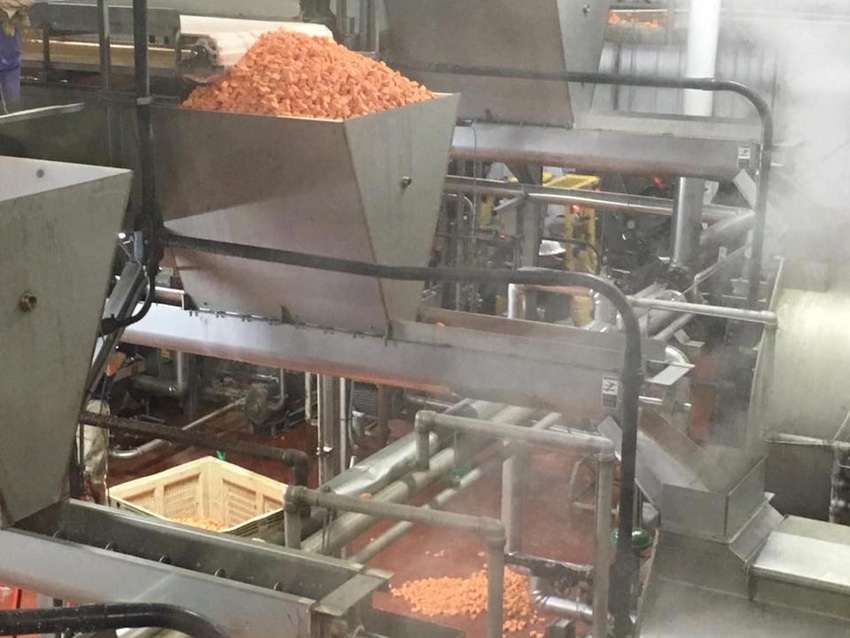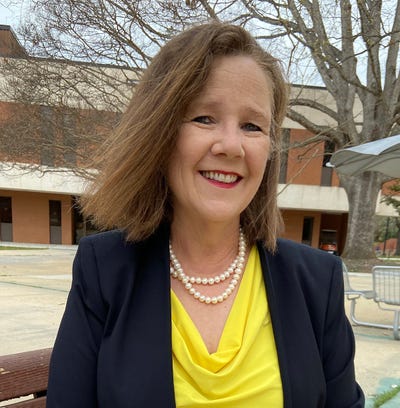
Clemson officials say the 2017 season will be a little sweeter for the South Carolina sweet potato industry now that a ban on sweet potatoes from two counties has been lifted.
The ban involved an exterior quarantine on sweet potatoes, imposed in the 1990s by the United States Department of Agriculture in several states, including South Carolina. Counties listed in the original quarantine were Beaufort, Charleston and Colleton counties. Clarendon and Florence counties were added after sweet potato weevils were found in these two counties in 2004.
Prior to the ban, South Carolina growers were selling sweet potato slips, small roots used to grow sweet potato sprouts, to North Carolina growers to plant in their fields. After the ban, the slips had to be fumigated before being allowed in North Carolina. Fumigating added additional expenses for South Carolina growers.
Steven Long, assistant director of the Clemson University Department of Plant Industry, said South Carolina sweet potato growers in Clarendon and Florence counties will greatly benefit now that the quarantines have been lifted.
“The lifting of this quarantine is huge for South Carolina sweet potato growers,” Long said. “Having to fumigate the slips before they could be planted in North Carolina was not economical for South Carolina growers. Now, after a long wait, they can sell and ship their sweet potatoes to North Carolina.”
Hugh Weathers, South Carolina commissioner of agriculture, said lifting this ban will help South Carolina agriculture grow.
“Crop diversification is essential in keeping agriculture the number one industry in South Carolina and moving us to our goal of reaching $50 billion in economic impact by 2020,” Weathers said. “Lifting this ban means more opportunities for our farmers and helps us be competitive with neighboring states.”
The ban also imposed additional costs and regulations on transporting sweet potatoes to South Carolina for processing.
“Before North Carolina growers could bring their sweet potato equipment — trucks, trailers, boxes, you name it — back to their farms, everything had to be cleaned and sanitized in South Carolina, which deterred business,” Long said. “Now that the quarantine has been lifted in Clarendon and Florence counties, North Carolina growers can have their sweet potatoes processed in South Carolina without having to worry about this added expense.”
Henry and Marion Swink, owners of McCall Farms in the Florence County community of Effingham where sweet potatoes are processed, said having the quarantine lifted is a “huge benefit” for South Carolina sweet potato growers.
“I think that sweet potato is a real good cash crop for South Carolina that the state hasn’t taken advantage of,” Marion Swink said. “North Carolina has proven it to be an incredibly good crop. Now with Clemson’s help in getting the sweet potato weevil eradicated in the Clarendon and Florence county area is a huge benefit for us, McCall Farms and for farmers in this area.”
Clemson’s role in removing sweet potato weevils began when a Clemson inspector found weevils in pheromone traps that were placed in fields belonging to two different farmers. The fields were disked and Clemson instituted a trapping program.
Sweet potato weevil trapping involves placing one trap for every 10 acres or a minimum of three traps per field in fields less than 30 acres, said Matthew Howle of the Department of Plant Industry.
“The sweet potato weevil trapping program is done solely by the Clemson University Department of Plant Industry,” Howle said. “Producers do not incur any of the costs associated with the program. The trapping program will continue indefinitely unless the regulations are changed.”
The program will continue in Beaufort, Charleston and Colleton counties where sweet potato quarantines still exist.
“This year, we’ll be determining if Beaufort and/or Colleton counties have sweet potato weevils,” Long said. “If we struggle to find weevils in those counties, we’ll increase our trapping regimen and seek the dropping of those counties from the quarantine as well. This will be a three-year process at minimum.”
Sweet potato planting in South Carolina takes place in May. Harvest begins in August. Powell Smith, Clemson Extension vegetable entomologist, said about 2,000 acres of sweet potatoes are grown in South Carolina.
“The South Carolina acreage had dropped to about 300 acres,” Smith said. “But in recent years, we’ve seen acreage start to increase.”
The 2015 Crop Production Summary from the United States Department of Agriculture shows North Carolina has the largest sweet potato crop with almost 87,000 acres planted in 2015. Mississippi comes in second with 27,000 acres planted, while California planted 18,500 acres and Louisiana planted 10,000 acres.
About the Author(s)
You May Also Like






